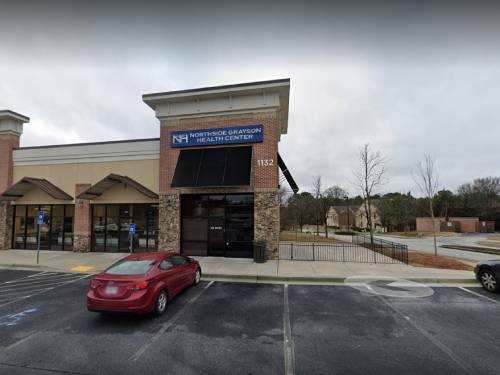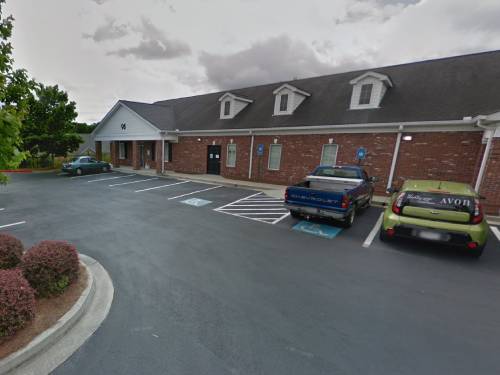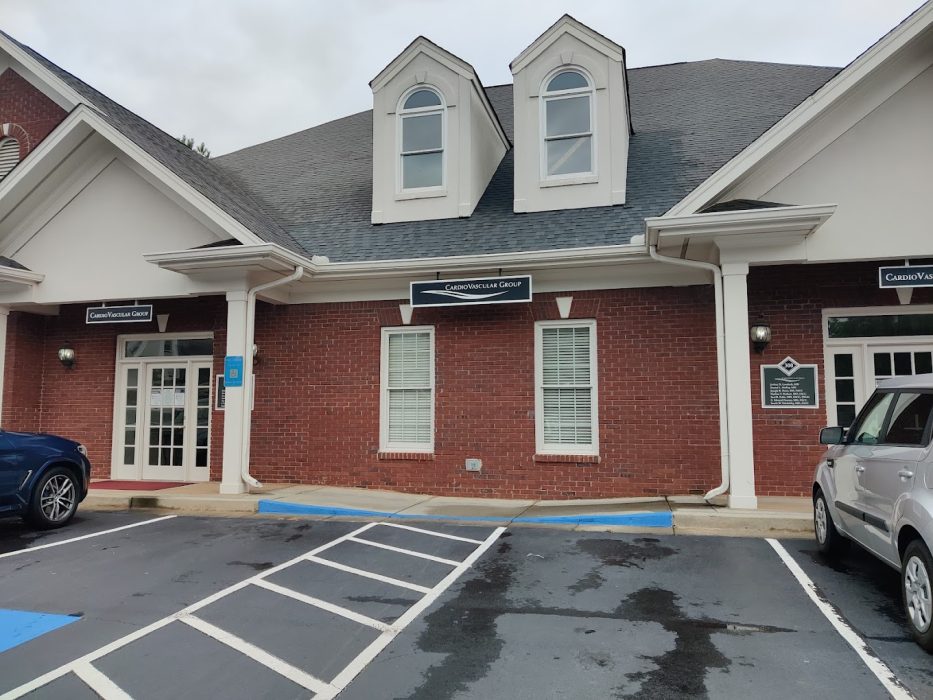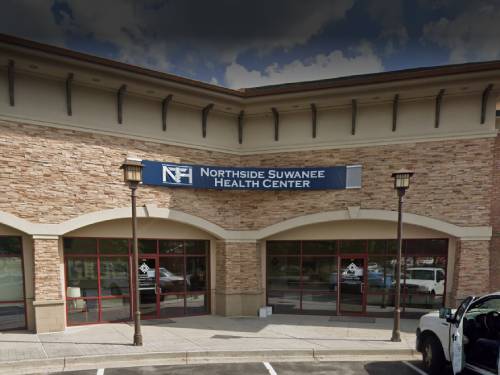UNDERSTANDING CARDIAC CATHETERIZATION
Lorem ipsum dolor sit amet, consectetur adipiscing elit.

Understanding Cardiac Catheterization: A Comprehensive Guide for Patients and Families
Cardiac catheterization is a powerful tool in your cardiologist’s arsenal for diagnosing and treating heart conditions. At our Atlanta heart clinic, this procedure is crucial in providing accurate diagnoses and effective treatments for various heart issues.
Cardiac catheterization, often called a “cardiac cath” or “heart cath,” is a minimally invasive procedure that allows our skilled cardiologists to examine your heart’s function and structure in detail. If you’re experiencing symptoms like chest pain, shortness of breath, or irregular heartbeats, your doctor might recommend this procedure to get a clearer picture of what’s happening inside your heart.
During a cardiac cath, a thin, flexible tube called a catheter is inserted into a blood vessel in your arm or groin and carefully guided to your heart. Don’t worry – you’ll be given a mild sedative to help you relax, and the procedure is generally painless. Once the catheter is in place, our Atlanta heart doctors can perform various diagnostic tests and treatments.
One common use of cardiac catheterization is checking for coronary artery blockages. By injecting a special dye through the catheter, your doctor can see detailed X-ray images of your heart’s blood vessels. This can reveal narrowed or blocked arteries that might be causing your symptoms or putting you at risk for a heart attack.
But cardiac cath isn’t just for diagnosis. In many cases, our cardiologists can perform treatments during the same procedure. For instance, if a blockage is found, your doctor might perform an angioplasty to open the artery and possibly insert a stent to keep it open. This approach can often provide immediate relief from symptoms and reduce your risk of future heart problems.
Cardiac catheterization can also help measure pressures within your heart chambers, assess your heart valve function, and even take small tissue samples for biopsy. It’s a versatile procedure that provides our Atlanta heart doctors with valuable information to guide your treatment plan.
You might be wondering about the risks. While many medical procedures carry some risk, cardiac catheterization is generally safe when performed by experienced professionals like our CVG heart doctors. Complications are rare, and the benefits often far outweigh the risks for most patients.
After the procedure, you must rest for a few hours while the insertion site heals. Most patients can go home the same day, although an overnight stay might sometimes be recommended. Our caring staff will provide detailed instructions for your recovery and any follow-up care you might need.
Feeling anxious about any heart procedure is natural, but rest assured that our Atlanta cardiology team is here to support you every step of the way. We’ll thoroughly explain the process, answer all your questions, and ensure you’re comfortable before, during, and after the procedure.
Cardiac catheterization is not just about diagnosing problems – it’s about taking proactive steps to protect your heart health. By choosing our Atlanta heart doctors for this procedure, you’re giving yourself access to advanced cardiac care and expertise that can make a real difference in your life.
Whether you’re dealing with known heart issues or investigating new symptoms, don’t hesitate to discuss cardiac catheterization with our team. We’re here to help you understand your options and make informed decisions about your heart health.
Read more about cardiac catheterization and how CVG provides comprehensive cardiac care.
What is Cardiac Catheterization?
Cardiac catheterization is a medical procedure that can diagnose or treat various heart conditions. This comprehensive guide will help you better understand what to expect during the procedure, the potential risks, and the recovery process. This information can help you feel more comfortable and prepared for this medical experience.
Cardiac catheterization is a medical procedure that involves the insertion of a thin, flexible tube called a catheter through a blood vessel and into the heart. This procedure is commonly used to diagnose and treat various heart conditions, such as coronary artery disease, heart valve problems, and congenital heart defects.
During the procedure, a healthcare professional will insert the catheter through a small incision in the arm or groin and guide it through the blood vessels and into the heart. Once the catheter is in place, various diagnostic tests can be performed, such as measuring the pressure inside the heart or taking pictures of the heart using X-rays or other imaging technologies.
Cardiac catheterization can also treat heart conditions, such as opening blocked arteries or repairing damaged heart valves. In these cases, the healthcare team may use the catheter to deliver medication or perform a procedure to open or repair the affected heart area.
Preparing for Cardiac Catheterization
Following specified preparations before cardiac catheterization is important to ensure the procedure is successful and safe.
First, your doctor will evaluate your medical history, medications, and allergies to determine if you are a suitable candidate for cardiac catheterization. You must inform your doctor if you are allergic to any medications or have kidney problems, as the contrast dye used during the procedure can affect the kidneys.
You may also be asked to fast for several hours beforehand to avoid complications from food in your stomach. Your doctor will advise you when to begin fasting.
Additionally, Your doctor may ask you to temporarily stop taking certain medications before the procedure, such as blood thinners, aspirin, or other anti-inflammatory drugs, as they can increase the risk of bleeding during operation.
It is important to let your doctor know if you have any medical conditions, such as diabetes or high blood pressure, as these conditions may require special considerations while you are under anesthesia.
It is also important to arrange for transportation to and from the hospital or clinic, as you cannot drive yourself post-procedure due to the sedatives and pain medications used.
The Cardiac Catheterization Procedure
During the cardiac catheterization procedure, you will be taken to a specialized room called a catheterization laboratory or cath lab. The procedure typically takes 30 minutes to 2 hours, depending on the case’s complexity.
First, you will be given a local anesthetic to numb the catheter’s insertion area, typically in the groin or wrist. Your healthcare team will then insert a thin, flexible tube called a catheter into a blood vessel and guide it up to your heart. X-rays or other imaging techniques may help guide the catheter.
Once the catheter is in place, your healthcare team will perform various tests to evaluate your heart’s health. These tests may include measuring the pressure inside the heart chambers, injecting contrast dye to visualize the blood flow through the heart and blood vessels, and taking tissue samples (biopsies) if necessary.
If your healthcare team identifies any blockages or narrowing in the coronary arteries, they may perform an additional procedure called angioplasty. During angioplasty, a tiny balloon attached to the catheter inflates to widen the narrowed artery, and a small metal mesh tube called a stent may be inserted to keep the artery open.
Throughout the procedure, you will be awake but sedated, and you may feel some pressure or discomfort as the catheter is inserted and moved through your blood vessels. It’s important to remain still and follow your healthcare team’s instructions to ensure the procedure goes smoothly.
After the procedure, the catheter is removed, and pressure is applied to the insertion site to prevent bleeding. You are taken to a recovery area and monitored for a few hours before discharge. You will usually go home on the same day as the procedure.
Risks and Potential Complications
Like any medical procedure, cardiac catheterization carries certain risks and potential complications. Some of the most common risks and complications associated with cardiac catheterization include:
Bleeding or Hematoma:
There is a risk of bleeding at the site where the catheter was inserted. Sometimes, bleeding can lead to a hematoma, a blood collection that forms a lump under the skin.
Infection:
Infection is a risk associated with any invasive medical procedure, including cardiac catheterization. Infections can range from mild to severe and may require additional medical treatment.
Allergic Reaction:
Some people may be allergic to the contrast dye used during cardiac catheterization. This can range from a mild rash to a severe reaction, such as anaphylaxis.
Blood Vessel Damage:
There is a risk of damage to the blood vessel where the catheter was inserted. This can cause narrowing or closure of the blood vessel and may require additional treatment.
Heart Attack or Stroke:
In rare cases, cardiac catheterization can cause a heart attack or stroke. This is more likely to occur in people with preexisting heart disease or other risk factors.
Radiation Exposure:
X-rays during cardiac catheterization expose the patient to a small amount of radiation. The amount of radiation is considered safe, but repeated exposure over time can increase the risk of cancer.
It’s important to discuss any concerns or questions about the risks and potential complications of cardiac catheterization with your healthcare team before the procedure. They can provide more detailed information and help you make an informed decision.
Recovery and Aftercare Following Cardiac Catheterization
Recovery and aftercare following cardiac catheterization are important aspects of the procedure that help ensure a successful outcome and reduce the risk of complications. Here are some key considerations to keep in mind:
Monitoring:
After the procedure, you will be monitored closely to ensure no complications. Depending on your condition and the type of procedure performed, this may involve staying in the hospital overnight or for a few days.
Activity Restrictions:
Your doctor may recommend avoiding strenuous activity, such as heavy lifting or exercise, for a certain time after the procedure. You should also avoid driving for at least 24 hours afterward, as sedatives and other medications can affect your ability to drive.
Medications:
Your doctor may prescribe medications to help manage any pain, swelling, or discomfort you may experience after the procedure. Your doctor may also give you medications to help prevent blood clots or other complications.
Wound Care:
If a puncture site was used during the procedure, you must keep the area clean and dry and monitor it for any signs of infection, such as redness, swelling, or discharge. Your doctor may provide specific instructions on caring for the wound and when to follow up for a checkup.
Follow-up Appointments:
You will probably need to schedule a follow-up appointment with your doctor to assess your recovery and ensure no complications. This appointment may include additional testing, such as an electrocardiogram (ECG) or blood tests, to monitor your heart function and check for abnormalities.
Most patients can return to normal activities within a few days to a week after the procedure. However, this can vary depending on the individual and the type of procedure performed. It’s important to follow your doctor’s instructions carefully and promptly report any symptoms or concerns to ensure a smooth recovery and optimal outcome.
Cardiac catheterization is a valuable tool for diagnosing and treating various heart conditions. While it may seem intimidating, understanding the procedure and the recovery process can help you feel more confident and prepared for this medical experience. If you have questions or concerns about cardiac catheterization, discuss them with your healthcare team. They can provide you with the information and support you need to make informed decisions about your healthcare.
CVG offers various services that can check and treat causes of fainting. At CVG, we perform stress tests that will observe blood flow and test for Atrial Fibrillation. There are three types of stress tests that we perform:
A treadmill test involves walking on a treadmill that gets faster and steeper every 3 minutes. This stress will cause your heart to beat faster, allowing our nurse or doctor to determine your EKG and blood pressure.
An echo test is performed before and after your treadmill test to determine how well your heart pumps blood.
A nuclear stress test is a treadmill test prefaced by an injection of medicine that shows blood flow to the heart.
We also offer cardiac catheterization, in which a catheter is inserted into the heart to take pictures and conduct tests. This procedure allows doctors to gain more information about your condition and suggest treatment options if the fainting episode is due to heart conditions.
If these tests determine a problem, we offer treatment solutions for several conditions. Learn more about our services here, or schedule an appointment to talk to our doctors.
Why Choose CVG?
At CVG, our cardiologists offer extensive experience caring for patients using state-of-the-art techniques. Their compassion adds so much to your care because our doctors understand how heart issues can affect you physically and take an emotional toll. Trust is the #1 factor in the doctor/patient relationship. You can trust your CVG cardiologist with every aspect of heart care.
Related Conditions:
- Causes And Treatment For Heart Arrhythmia
- Causes And Treatment Of Pulmonary Stenosis
- Expert Insights on Cardiac Catheterization
- Expert Insights on Low Blood Pressure
- Exploring the Latest Advances in Atrial Fibrillation Treatment
- Dangerously high cholesterol?
- Get Your Blood Pressure Test Today!
- Understanding Electrical Cardioversion
- What Are ACE Inhibitors Used For?
- What foods are high in cholesterol?
- What Heart Flutters Can Mean
- What is Heart Failure & How to Treat it?
- What Is The Success Rate Of The Watchman Procedure?
Top Conditions:
- How long can someone live with an enlarged heart?
- Pros and Cons of the Watchman Device
- Risks and Complications of Cardiac Catheterization
- Side Effects Of The Watchman Device
- The Benefits of Cardiac Catheterization
- The Dangers Of High Blood Pressure
- The Dangers Of High Cholesterol
- The Watchman Implant Procedure
- Tips To Lower High Cholesterol
- Understanding Cardiac Catheterization
Call to Schedule an Appointment
Board-certified Doctors
CVG’s twenty board-certified heart doctors will guide you through your healthcare journey with the utmost compassion and individual attention. We aim to provide you with state-of-the-art cardiac care that includes the full spectrum of services, from testing to diagnosis and treatment. The doctor/patient relationship is built on trust. Through our combined efforts, we can conquer any challenge that comes our way.
Invasive therapies may also treat an abnormal heart rhythm, such as electrical cardioversion, which sends electrical impulses through your chest wall and allows normal heart rhythm to restart, or catheter ablation that disconnects the abnormal rhythm’s pathway. Suppose your doctor determines that electrical devices are the best course of action. In that case, you may be given a permanent pacemaker, an implantable cardioverter-defibrillator (ICD), or biventricular (B-V) pacemakers and defibrillators.
How CVG Can Help
CVG offers multiple services that can discover an enlarged heart or conditions that will lead to it. At CVG, we perform stress tests that will observe blood flow and test for various forms of heart disease. There are three types of stress tests that we perform:
- A treadmill test is a test in which you will walk on a treadmill that gets faster and steeper every 3 minutes. This will stress your heart so that our nurse or doctor can determine your heart rate and blood pressure.
- An echo test is performed before and after your treadmill test to determine how well your heart pumps blood.
- A nuclear stress test is a treadmill test that is prefaced by an injection of medicine that shows the flow of blood to your heart.
We also offer cardiac catheterization to diagnose and treat several heart issues. If any of these tests determine a problem, we offer treatment solutions such as atrial fibrillation testing and catheter ablation. Learn more about our services here, or schedule an appointment to talk to our doctors.
Schedule Your Appointment with a CVG Atlanta Area Cardiologist
Expertise, experience, and compassion are the pillars of CVG’s patient-centered cardiac care. Please schedule your appointment with CVG today. Call (770) 962-0399 or 678-582-8586. You may also request an appointment online. If you have an emergency, don’t contact us online; please call 911.
Locations To Get Cardiac Catheterization












